PHILADELPHIA (KYW Newsradio) — With a nondescript facade and a multi-million dollar new construction project partially obscuring the exterior, one of the most historically important Black churches in the United States can go easily unnoticed on South Broad Street between Catharine and Fitzwater streets.
Tindley Temple United Methodist has roots dating back 185 years. It achieved notoriety in the 1920s and 1930s under the leadership of Dr. Charles A. Tindley.

Sometimes referred to as the “prince of preachers” or the “godfather of gospel,” Tindley penned dozens of prominent gospel hymns. One of them, “I’ll Overcome Someday,” went on to inspire parts of the lyrics and song structure of the Civil Rights anthem “We Shall Overcome.”
For as long as some of these hymns have endured, Tindley Temple’s base has not. Gentrification and the COVID-19 pandemic have eroded the church’s membership, which during its heyday was in the thousands.
Robert L. Johnson, pastor at Tindley Temple, considers it his mission to restore the church's identity. He knows plenty about it, having grown up in the church.
“Tindley Temple is looking to reclaim itself as the Mecca in the middle of this community,” said Johnson, who first started going to Tindley Temple when he was eight years old.
“Churches, civic organizations and nonprofits need to come together so that we can help to be the beacon light that this dark community needs across our city.”
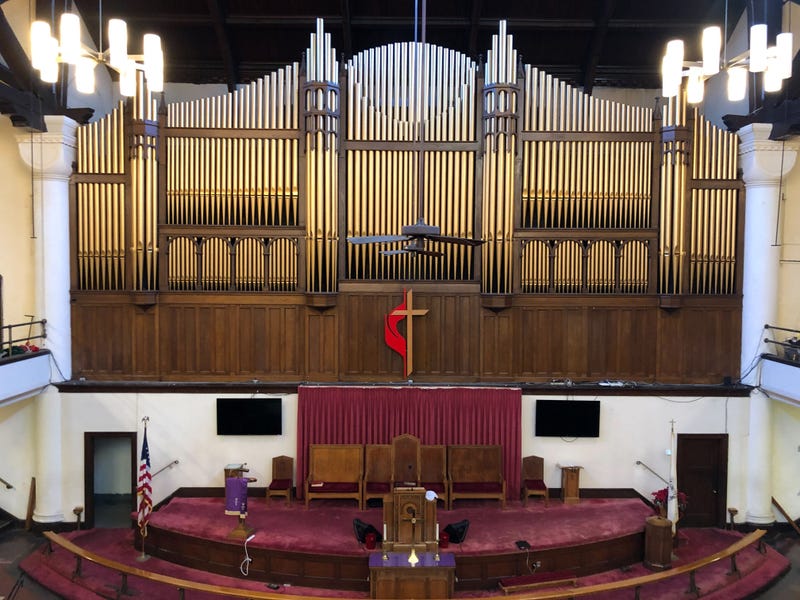
An original
Tindley Temple is one of those places where you walk in and the timeless vibes hit you immediately, like at the Palestra or Academy of Music. Rev. Johnson described his church’s “living history."
“You look at the roof at the ceiling level. The first thing you have to understand is getting the amount Dr. Tindley valued this place," said Rev. Johnson.
"If you look at it, Noah's Ark [is] the first thing you [see], because the church was supposed to be the ark of safety. The windows on the top, they're letting in so much natural light. There's not a piece of metal up there. They're all wooden beams. And just imagine that you're in this ark, this ship, this place that encompasses. And then if you look up at the balcony, you'll see these wooden chairs handcrafted on South Street.”

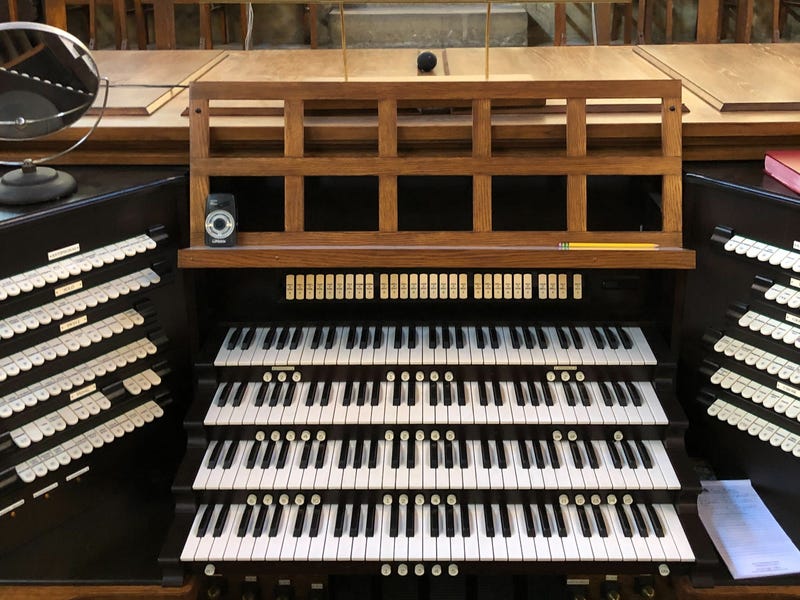
“Heaven on Earth”
A signature ingredient to Tindley Temple’s sound can be found in the first row of the second-level balcony. It’s a Moller organ, which was installed in 1926, and recently underwent a seven-figure renovation thanks to a couple of the church’s benefactors.
Tindley Temple Minister of Music Theodore Thomas typically plays several of Dr. Tindley’s tunes on the organ.
“This [organ] is part of who we are. We're very proud of the fact that every time we're here this instrument is played, you know?" said Johnson.
"Pipe organs are like our bodies. The more you exercise them, the more you move them…this is not an instrument to be made to be looked at and set but it is part of who we are. On high holidays, when we have this pipe organ and the choir is full-throated singing, [it] is the nearest thing you can get to Heaven on Earth.”
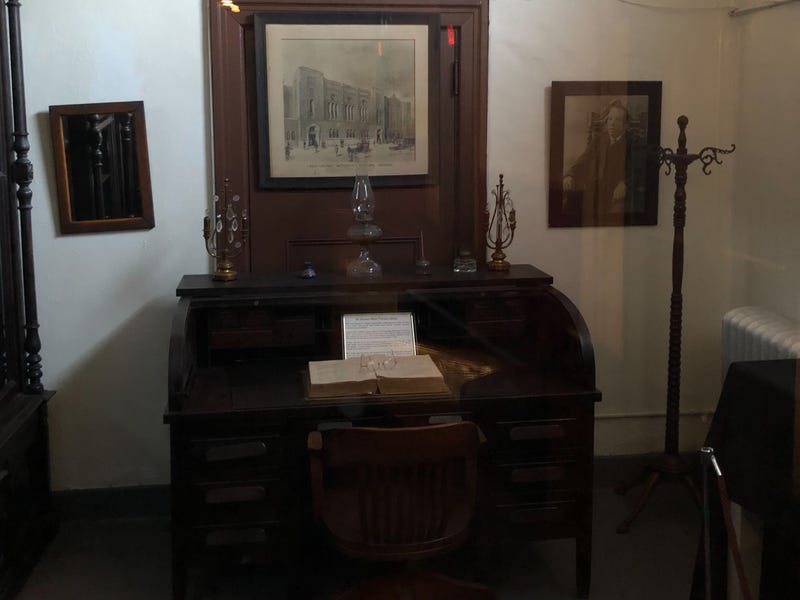

From janitor to pastor
Dr. Tindley seemed like he was very much a self-made American. According to Rev. Johnson, Tindley taught himself to read and write. His original foot-in-the-door at the church was as a janitor. He eventually ascended to the role of pastor, and in doing so made an enduring mark on the gospel hymnal canon.
“Dr. Tindley learned bar tunes. He would listen outside the bars and hear the piano player in the bar tunes. And then he would sit down," said Rev. Johnson.
"In this place, in this building, right now, his original office has been left untouched. He'd sit there in that office, and used to write down from his experience and put it to words and his late wife would do the crossing out and the changing of the lyrics. He self-taught himself how to play the piano, and that's how we did."
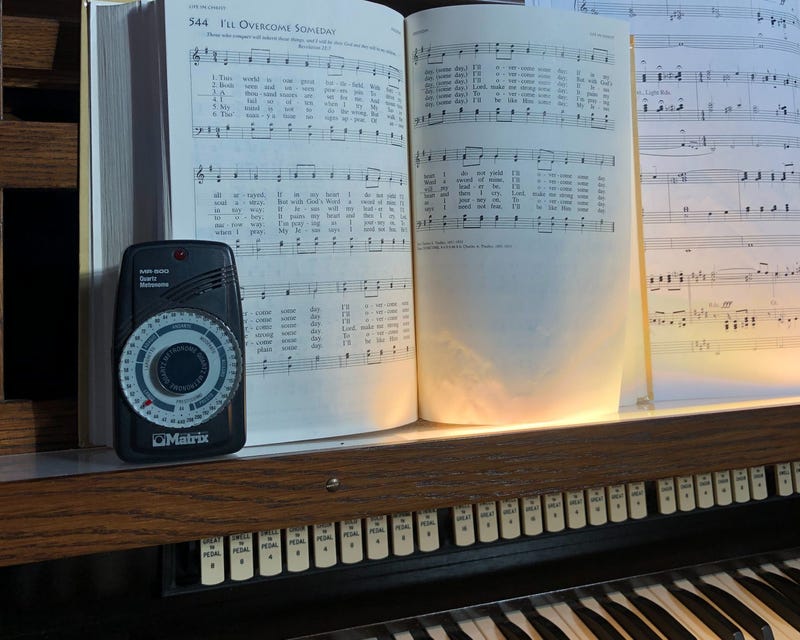
The idea behind an anthem
While the lyrics are far from identical and the melodies differ dramatically, Dr. Tindley’s hymn “I’ll Overcome Someday” is widely cited as being a source of inspiration for “We Shall Overcome,” an anthem of the civil rights movement.
“There are things that Dr. Tindley wrote that are still resonating with our community and all other communities that are oppressed and feeling, you know, that they have not gotten their fair share, that they have not gotten the relief that they've needed. In the struggle, in the fight for equality, [the struggle] is still here," said Rev. Johnson.
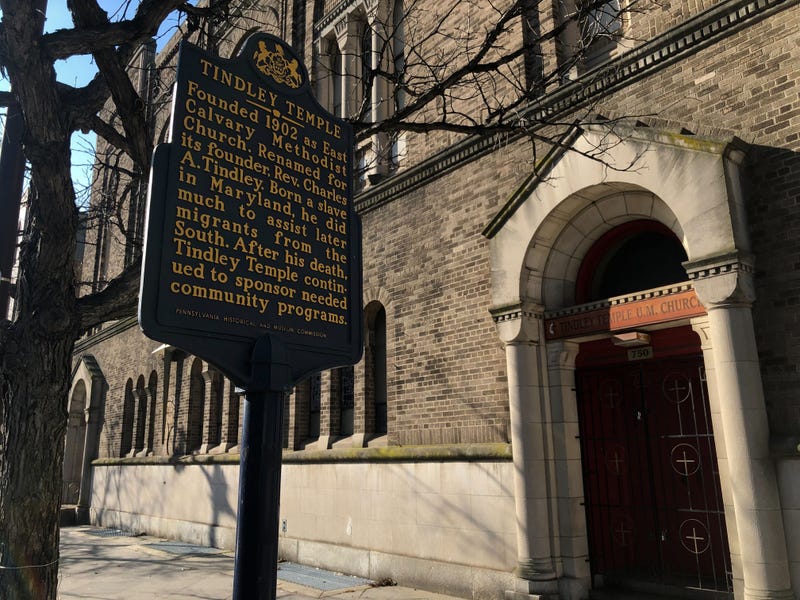
A new beacon on Broad Street?
With gentrification and the pandemic creating a complicated backdrop, Rev. Johnson is hoping he can help usher Tindley Temple into a new era.
“Dr. Tindley’s legacy was one of perseverance through toughness, and this is a tough time. Through all that he had been through and everything that he did, he built this. And he didn't build it so that his name could be on it. He built it so that future generations could have a place where they could worship even in tough times," Rev. Johnson said.
"If Tindley were alive today, he would just be in that office over here and write down the word, ‘If in my heart I do not yield, I'll overcome someday.' So that's what we'll read out, a statement we need to keep hope alive and keep the dream."
On KYW Newsradio’s In Depth podcast, hear how Johnson hopes to help usher in a new era at Tindley Temple, and do so in a spirit befitting of the church’s namesake. Listen to the podcast below.






